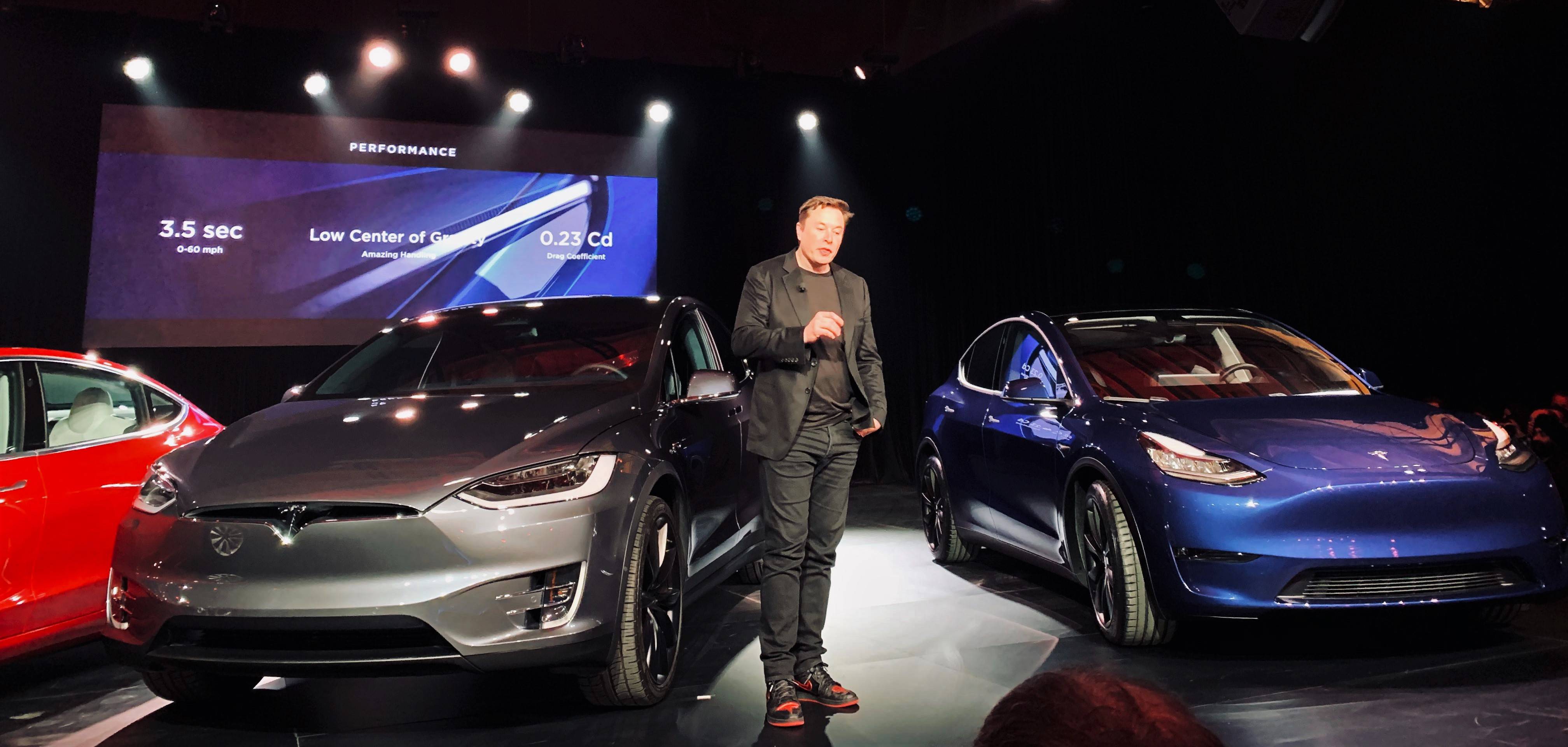

Lifestyle
After Tesla’s rise, the “Best Worst EV Denial” award in legacy auto goes to…
Tesla is a lot of things to a lot of people, but if you’ve found yourself in the “catch up” position that most legacy auto makers have these days in producing zero-emissions vehicles, the all-electric newcomer is a force that needs to be slowed down by something… Anything, really. What about a diesel revival? What about customer demand? What about a hydrogen revolution?
Well, what about them?
First things first, let’s recognize that unlike most of its petrol brethren, Porsche read the memo early about inevitable vehicle electrification (after a bit of push back, naturally), and its first major step was to dump diesel. CEO Oliver Blume summarized as much in a recent statement to CNN. “We as a sports car manufacturer…have come to the conclusion that we would like our future to be diesel-free,” he commented on the company’s announcement of the decision. The all-electric Taycan is set to be unveiled in September, and from what we’ve seen so far, it looks like it will be a power-packed beauty worthy of the Porsche name. Bravo!
What about diesel and demand?
Moving on, we all know Volkswagen’s original competitive strategy to sell “lower emissions” diesel vehicles was bunk, not to mention highly illegal and very expensive to make amends for, and most of us know they’ve since invested a lot of (forced) money into green energy projects to make up for it. (See: Dieselgate) Some of us may even think they’ve finally come around to agreeing with Elon Musk and company about the direction of the automotive industry with their upcoming Volkswagen ID. family of e-cars and other pretty words put out to that effect.
I have my doubts, but more on that in a bit.
One of the interesting perspectives on electric vehicles (EVs) I’ve read coming from a legacy auto executive was from Ralf Speth, CEO of Jaguar Land Rover. “According to industry forecasters, a global share of 20 percent to 30 percent for electrified vehicles is expected by 2025. When you turn this around, it means that 70 percent to 80 percent of all vehicles around the world will have conventional engines. Let me add that today’s diesels…are absolutely CO2-efficient and clean,” Speth told the publication Automobilwoche in a recent interview. I guess he’s not wrong on current stock, but having a lot of clearance items on a rack is only a selling point for so long. This is both “whataboutism” and a strange variation of the “cup is half full” metaphor. (The cup is 70-80% full of mixer when I ordered a shot? Sorry.)

Speth also claimed electric cars are still too expensive and have poor infrastructure to lure in many customers. It’s almost like he’s never heard of Tesla or his own company’s EV, the award-winning I-PACE. It’s almost like he forgot what his own company’s luxury vehicles cost at the baseline. (Hint: It’s more than $35k) There’s talk that Jaguar might go all-electric in the next 10 years, but walking is much more important than talking.
Speth isn’t alone in this sentiment, either. On one hand, BMW is ramping up its electro-mobility efforts by purchasing cobalt and lithium and preparing battery farms and systems for grid stabilization. On the other hand, the legacy auto maker only seems to be going through the motions because the European Union’s emissions regulations says they must. Imagine being told you have to take 20% less cheese on your pizza (which you love) and then singing the praises of tomato pies the next day. It’s a bit odd, I think.
Although the German auto maker is currently undergoing a changing of the guard in ousting CEO Harald Krüger due to poor performance in electrification efforts, a negative approach to EVs seems to be par for the course for the company’s leadership. Krüger may be leaving, but BMW AG board member and Head of Development Klaus Fröhlich is said to be one of two men in the running to take Krüger’s place. Even if he doesn’t get the top spot, he’s still part of the top leadership.

“I think the discussion about electro-mobility is a little bit irrational,” Fröhlich recently told Australian journalists at the 2018 Paris Motor Show. “The diesel development from BMW perspective is quite dramatic. We have, I think, more or less the best diesels. All tests show that we have the lowest emissions. We have a spiral in Europe where every politician sees only one solution – diesel bashing. From a CO2 and customer perspective, a modern diesel is a very good solution. Especially for heavy, high-performing cars,” he added. Here’s another recent gem from Fröhlich during a roundtable discussion:
“If we have a big offer, a big incentive, we could flood Europe and sell a million cars, but Europeans won’t buy these things. Customers in Europe do not buy EVs. We pressed these cars into the market, and they’re not wanted. We can deliver an electrified vehicle to each person, but they will not buy them.”
It appears both Fröhlich and Krüger have a case of “whataboutism” here in terms of diesel. You know who else has this same affliction? Volkswagen AG CEO Matthias Müller. While the auto giant is investing billions of dollars into electrified transport, Müller is still hoping for a ‘diesel renaissance’ of sorts for whatever reason. “Diesel will see a renaissance in the not-too-distant future because people who drove diesels will realize that it was a very comfortable drive concept. Once the knowledge that diesels are eco-friendly firms up in people’s minds, then for me there’s no reason not to buy one,” he told media groups in September.
Someone should tell him that internal combustion engines (ICE) are in the crosshairs of regulators next, with countries like Norway leading the way on ICE bans.
What about hydrogen?
Then, there’s the hydrogen hope. Elon Musk’s disdain for the inefficiencies of fuel cell vehicles is well known in the Tesla community and beyond, and it’s hard to disagree with his position unless you’re in the business to benefit from his mistakes. In contrast, one auto industry expert predicted that the market would see a shift to hydrogen in the next decade or so.

“The fuel cell is not ready to kick in yet. By 2030, we’ll see that coming, especially in passenger cars that run long distances, or trucks… Fuel cell is not out of reach,” argued Dr. Felix Gress, head of industry consultant firm Continental’s corporate communications and public affairs. “The battery technology, according to our estimations, has its limits,” he continued, adding that “it doesn’t generate enough range” for some people’s needs.
I’m not an expert in physics, merely a fan of the stuff that keeps me attached to the planet, but I have yet to see any layman’s argument in favor of fuel cells that’s more convincing than Musk’s (and others’) arguments against it. In the end, though, how can someone point to infrastructure issues with EVs as an argument for fuel cell cars while hydrogen networks are practically non-existent?
“The Monica” Award for EV Denialism
All of this “whataboutism” sounds like a matter of ego bruising to me. Tesla isn’t just ahead in the game when it comes to electric vehicles. The Elon Musk-led venture has become the main boss level at this point. With that in mind, competitors seem to be scrambling to find some sort of leverage to claim some sort of title for some sort of silly reason.
- Electric vehicle sales are ramping up everywhere they’re sold? What about these diesels we still have on the lot?
- Customers are buying more EVs as the battery tech gets better and the charging infrastructure gets larger? What about the infrastructure that’s still needed? What about the batteries that have yet to be made?
The current state of Tesla’s legacy auto competitors reminds me of an episode of the classic 90s sitcom Friends. One of the main characters, Monica, was a perfectionist who needed to be the best at everything, but she would give her friends these terrible and painful massages throughout the episode. After her boyfriend finally admitted the truth to her, he consoled her by saying if there was an award for the “best bad massages” she’d “get all the votes.”
They agreed the award would be called “The Monica.”

Do you think there are legacy auto makers in the running for “The Monica” of EV denialism? If so, which ones?
Elon Musk
X account with 184 followers inadvertently saves US space program amid Musk-Trump row
Needless to say, the X user has far more than 184 followers today after his level-headed feat.
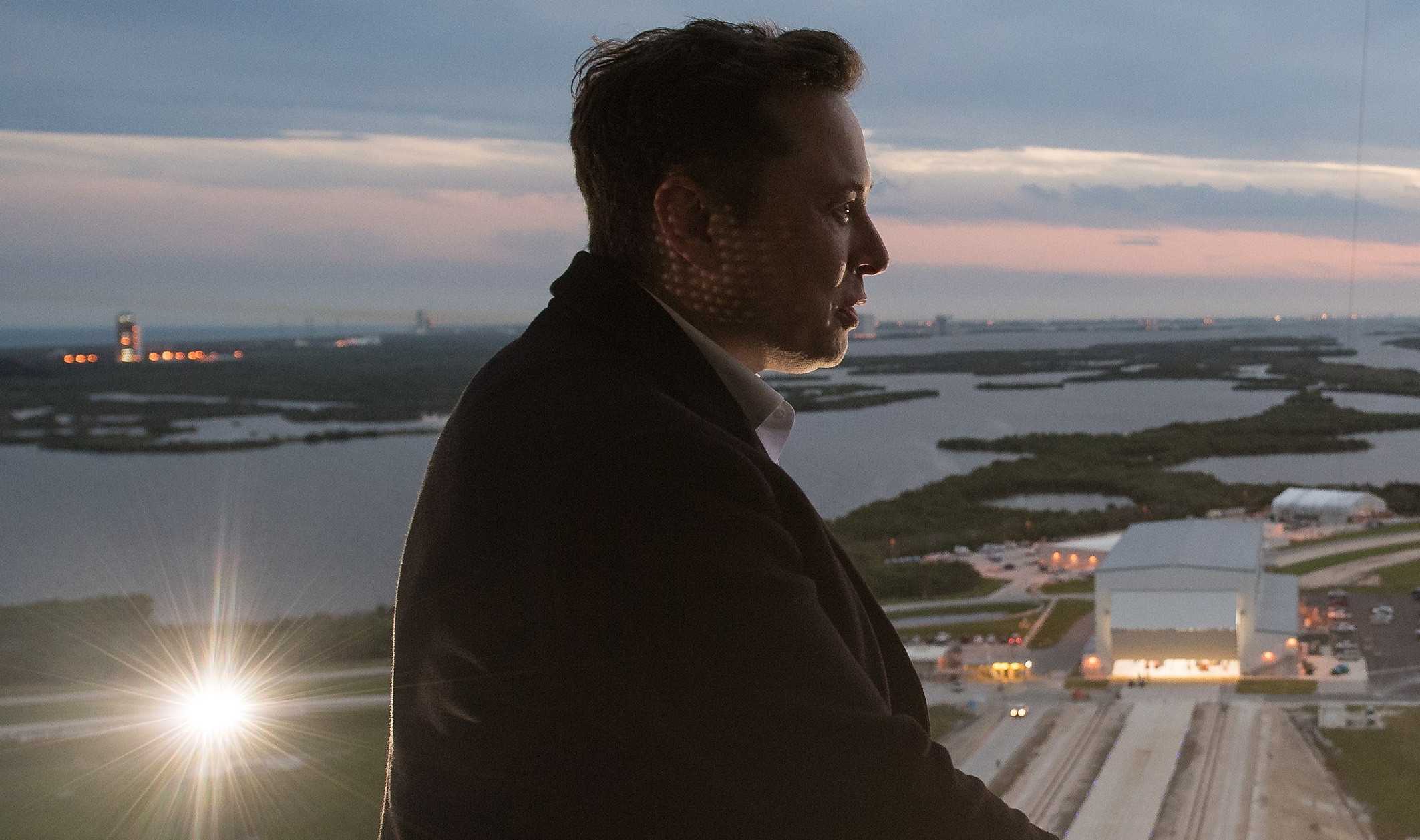
An X user with 184 followers has become the unlikely hero of the United States’ space program by effectively de-escalating a row between SpaceX CEO Elon Musk and President Donald Trump on social media.
Needless to say, the X user has far more than 184 followers today after his level-headed feat.
A Near Fall
During Elon Musk and Donald Trump’s fallout last week, the U.S. President stated in a post on Truth Social that a good way for the United States government to save money would be to terminate subsidies and contracts from the CEO’s companies. Musk responded to Trump’s post by stating that SpaceX will start decommissioning its Dragon spacecraft immediately.
Musk’s comment was received with shock among the space community, partly because the U.S. space program is currently reliant on SpaceX to send supplies and astronauts to the International Space Station (ISS). Without Dragon, the United States will likely have to utilize Russia’s Soyuz for the same services—at a significantly higher price.
X User to the Rescue
It was evident among X users that Musk’s comments about Dragon being decommissioned were posted while emotions were high. It was then no surprise that an X account with 184 followers, @Fab25june, commented on Musk’s post, urging the CEO to rethink his decision. “This is a shame this back and forth. You are both better than this. Cool off and take a step back for a couple days,” the X user wrote in a reply.
Much to the social media platform’s surprise, Musk responded to the user. Even more surprising, the CEO stated that SpaceX would not be decommissioning Dragon after all. “Good advice. Ok, we won’t decommission Dragon,” Musk wrote in a post on X.
Not Planned, But Welcomed
The X user’s comment and Musk’s response were received extremely well by social media users, many of whom noted that @Fab25june’s X comment effectively saved the U.S. space program. In a follow-up comment, the X user, who has over 9,100 followers as of writing, stated that he did not really plan on being a mediator between Musk and Trump.
“Elon Musk replied to me. Somehow, I became the accidental peace broker between two billionaires. I didn’t plan this. I was just being me. Two great minds can do wonders. Sometimes, all it takes is a breather. Grateful for every like, DM, and new follow. Life’s weird. The internet’s weirder. Let’s ride. (Manifesting peace… and maybe a Model Y.)” the X user wrote.
Lifestyle
Tesla Cybertruck takes a bump from epic failing Dodge Charger
The Cybertruck seemed unharmed by the charging Charger.
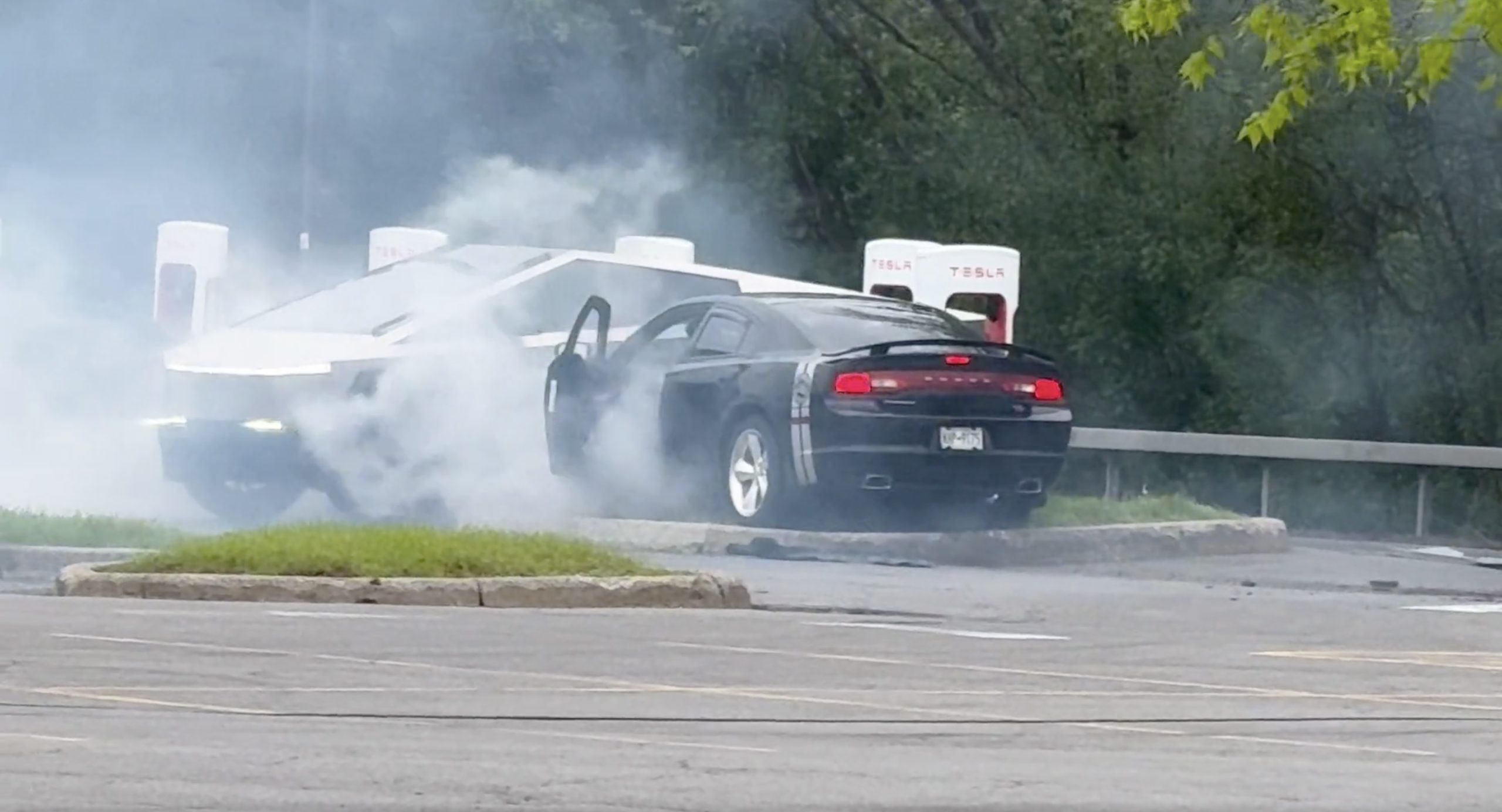
There comes a time in a driver’s life when one is faced with one’s limitations. For the driver of a Dodge Charger, this time came when he lost control and crashed into a Tesla Cybertruck–an absolute epic fail.
A video of the rather unfortunate incident was shared on the r/TeslaLounge subreddit.
Charging Charger Fails
As could be seen in the video, which was posted on the subreddit by Model Y owner u/Hammer_of_something, a group of teens in a Dodge Charger decided to do some burnouts at a Tesla Supercharger. Unfortunately, the driver of the Charger failed in his burnout or donut attempt, resulting in the mopar sedan going over a curb and bumping a charging Cybertruck.
Ironically, the Dodge Charger seemed to have been parked at a Supercharger stall before its driver decided to perform the failed stunt. This suggests that the vehicle was likely ICE-ing a charging stall before it had its epic fail moment. Amusingly enough, the subreddit member noted that the Cybertruck did not seem like it took any damage at all despite its bump. The Charger, however, seemed like it ran into some trouble after crashing into the truck.
Alleged Aftermath
As per the the r/TeslaLounge subreddit member, the Cybertruck owner came rushing out to his vehicle after the Dodge Charger crashed into it. The Model Y owner then sent over the full video of the incident, which clearly showed the Charger attempting a burnout, failing, and bumping into the Cybertruck. The Cybertruck owner likely appreciated the video, in part because it showed the driver of the Dodge Charger absolutely freaking out after the incident.
The Cybertruck is not an impregnable vehicle, but it can take bumps pretty well thanks to its thick stainless steel body. Based on this video, it appears that the Cybertruck can even take bumps from a charging Charger, all while chilling and charging at a Supercharger. As for the teens in the Dodge, they likely had to provide a long explanation to authorities after the incident, since the cops were called to the location.
Lifestyle
Anti-Elon Musk group crushes Tesla Model 3 with Sherman tank–with unexpected results
Ironically enough, the group’s video ended up highlighting something very positive for Tesla.
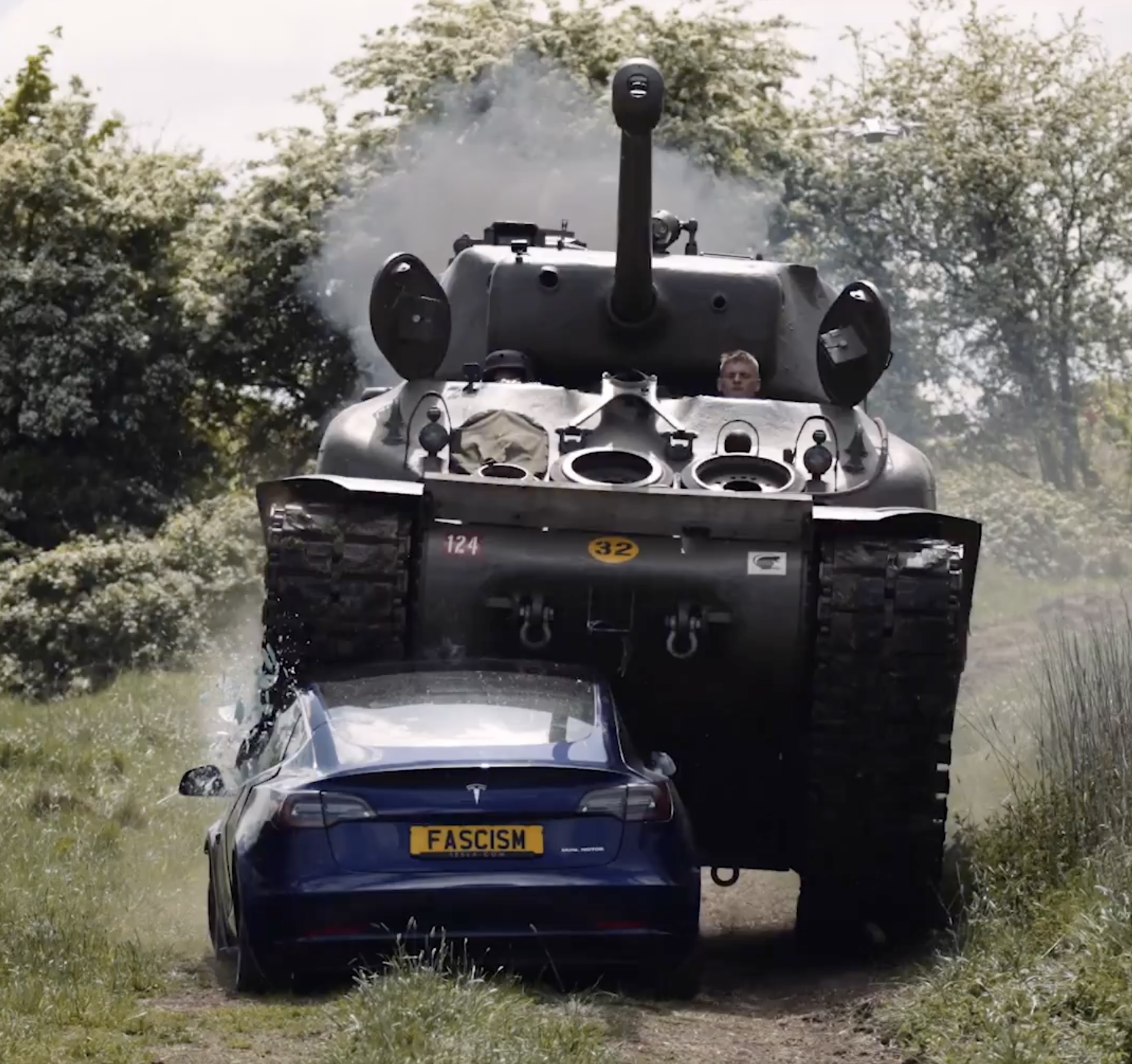
Anti-Elon Musk protesters and critics tend to show their disdain for the CEO in various ways, but a recent video from political action group Led By Donkeys definitely takes the cake when it comes to creativity.
Ironially enough, the group’s video also ended up highlighting something very positive for Tesla.
Tank vs. Tesla
In its video, Led By Donkeys featured Ken Turner, a 98-year-old veteran who served in the British army during World War II. The veteran stated that Elon Musk, the richest man in the world, is “using his immense power to support the far-right in Europe, and his money comes from Tesla cars.”
He also noted that he had a message for the Tesla CEO: “We’ve crushed fascism before and we’ll crush it again.” To emphasize his point, the veteran proceeded to drive a Sherman tank over a blue Tesla Model 3 sedan, which, of course, had a plate that read “Fascism.”
The heavy tank crushed the Model 3’s glass roof and windows, much to the delight of Led By Donkeys’ commenters on its official YouTube channel. But at the end of it all, the aftermath of the anti-Elon Musk demonstration ended up showcasing something positive for the electric vehicle maker.
Tesla Model 3 Tanks the Tank?
As could be seen from the wreckage of the Tesla Model 3 after its Sherman encounter, only the glass roof and windows of the all-electric sedan were crushed. Looking at the wreckage of the Model 3, it seemed like its doors could still be opened, and everything on its lower section looked intact.
Considering that a standard M4 Sherman weighs about 66,800 to 84,000 pounds, the Model 3 actually weathered the tank’s assault really well. Granted, the vehicle’s suspension height before the political action group’s demonstration suggests that the Model 3’s high voltage battery had been removed beforehand. But even if it hadn’t been taken off, it seemed like the vehicle’s battery would have survived the heavy ordeal without much incident.
This was highlighted in comments from users on social media platform X, many of whom noted that a person in the Model 3 could very well have survived the ordeal with the Sherman. And that, ultimately, just speaks to the safety of Tesla’s vehicles. There is a reason why Teslas consistently rank among the safest cars on the road, after all.
-

 Elon Musk5 days ago
Elon Musk5 days agoTesla investors will be shocked by Jim Cramer’s latest assessment
-

 News1 week ago
News1 week agoTesla Robotaxi’s biggest challenge seems to be this one thing
-

 Elon Musk2 weeks ago
Elon Musk2 weeks agoFirst Look at Tesla’s Robotaxi App: features, design, and more
-

 News2 weeks ago
News2 weeks agoWatch Tesla’s first driverless public Robotaxi rides in Texas
-

 News2 weeks ago
News2 weeks agoWatch the first true Tesla Robotaxi intervention by safety monitor
-
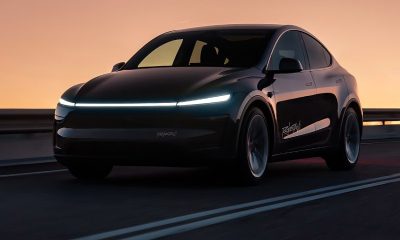
 Elon Musk2 weeks ago
Elon Musk2 weeks agoTesla officially launches Robotaxi service with no driver
-

 Elon Musk1 week ago
Elon Musk1 week agoA Tesla just delivered itself to a customer autonomously, Elon Musk confirms
-

 News2 weeks ago
News2 weeks agoTesla Robotaxi rollout proves that Elon Musk still delivers, even if it’s late

















